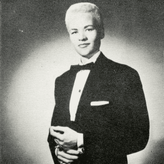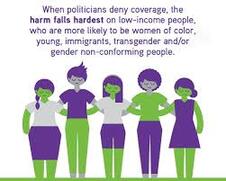
by Jackie Marino-Thomas
Many only know Stormé DeLarverie as the person who may have been the “cross-dressing lesbian” who threw the first punch in the 1969 Stonewall Riots. But she was an icon in the LGBTQ+ community far before that night.
Stormé DeLarverie was the child of a white father and black mother in New Orleans, Louisiana, and was never issued a birth certificate due to interracial marriage being illegal at the time. However, they decided to celebrate her birth on December 24th, 1920. While growing up, DeLarverie was constantly bullied and attacked for being biracial. One such incident left her in a leg brace, while another gave her a scar from being hung on a fence. It grew to a point where her father had to send her to private school for her own safety. At the age of 18, DeLarverie discovered that she was a lesbian - so she moved to Chicago, fearing she’d definitely be murdered if she remained in the south.
In 1946, though, she made a trip to Miami, Florida to visit Danny Brown and Doc Brenner of the venue Danny’s Jewel Box (from which the Jewel Box Revue would later spring). They needed help with their show, and Stormé offered to do an act of male impersonation. Many told her she shouldn’t do drag, but she didn’t care, and what was intended as a 6 month gig turned into 14 years. “It was very easy. All I had to do was just be me and let people use their imaginations,” DeLarverie was quoted as saying in the short film Stormé: The Lady of the Jewel Box. “It never changed me. I was still a woman.” Some say her performances inspired other lesbians in New York at the time to dress in more traditionally masculine attire.
Shortly after the Stonewall Riots, her girlfriend of 25 years, a dancer named Diana, passed away, and DeLarverie gave up on performing almost entirely. Instead, she turned to security - becoming a bodyguard for wealthy families during the day, and a bouncer at various lesbian bars at night. She had no tolerance for what she called “ugly” (rudeness, bullying, intolerance, etc) at her “baby girls” in the bars. One such bar was the Cubbyhole, and she continued to work there when it became known as Henrietta Hudson. DeLarverie was on staff until she was 85 years old. “She literally walked the streets of downtown Manhattan like a gay superhero,” her longtime friend Lisa Cannistraci told The New York Times, “She was not to be messed with by any stretch of the imagination.” Cannistraci helped take care of DeLarverie during her later years.
Stormé DeLarverie died in her sleep on May 24th, 2014 at the age of 93. Throughout her entire life, she fought for everyone to have the ability to be themselves. Here at NEAT, we encourage you to honor her spirit and help everyone you meet feel comfortable enough to be their authentic self!
Many only know Stormé DeLarverie as the person who may have been the “cross-dressing lesbian” who threw the first punch in the 1969 Stonewall Riots. But she was an icon in the LGBTQ+ community far before that night.
Stormé DeLarverie was the child of a white father and black mother in New Orleans, Louisiana, and was never issued a birth certificate due to interracial marriage being illegal at the time. However, they decided to celebrate her birth on December 24th, 1920. While growing up, DeLarverie was constantly bullied and attacked for being biracial. One such incident left her in a leg brace, while another gave her a scar from being hung on a fence. It grew to a point where her father had to send her to private school for her own safety. At the age of 18, DeLarverie discovered that she was a lesbian - so she moved to Chicago, fearing she’d definitely be murdered if she remained in the south.
In 1946, though, she made a trip to Miami, Florida to visit Danny Brown and Doc Brenner of the venue Danny’s Jewel Box (from which the Jewel Box Revue would later spring). They needed help with their show, and Stormé offered to do an act of male impersonation. Many told her she shouldn’t do drag, but she didn’t care, and what was intended as a 6 month gig turned into 14 years. “It was very easy. All I had to do was just be me and let people use their imaginations,” DeLarverie was quoted as saying in the short film Stormé: The Lady of the Jewel Box. “It never changed me. I was still a woman.” Some say her performances inspired other lesbians in New York at the time to dress in more traditionally masculine attire.
Shortly after the Stonewall Riots, her girlfriend of 25 years, a dancer named Diana, passed away, and DeLarverie gave up on performing almost entirely. Instead, she turned to security - becoming a bodyguard for wealthy families during the day, and a bouncer at various lesbian bars at night. She had no tolerance for what she called “ugly” (rudeness, bullying, intolerance, etc) at her “baby girls” in the bars. One such bar was the Cubbyhole, and she continued to work there when it became known as Henrietta Hudson. DeLarverie was on staff until she was 85 years old. “She literally walked the streets of downtown Manhattan like a gay superhero,” her longtime friend Lisa Cannistraci told The New York Times, “She was not to be messed with by any stretch of the imagination.” Cannistraci helped take care of DeLarverie during her later years.
Stormé DeLarverie died in her sleep on May 24th, 2014 at the age of 93. Throughout her entire life, she fought for everyone to have the ability to be themselves. Here at NEAT, we encourage you to honor her spirit and help everyone you meet feel comfortable enough to be their authentic self!


 RSS Feed
RSS Feed
